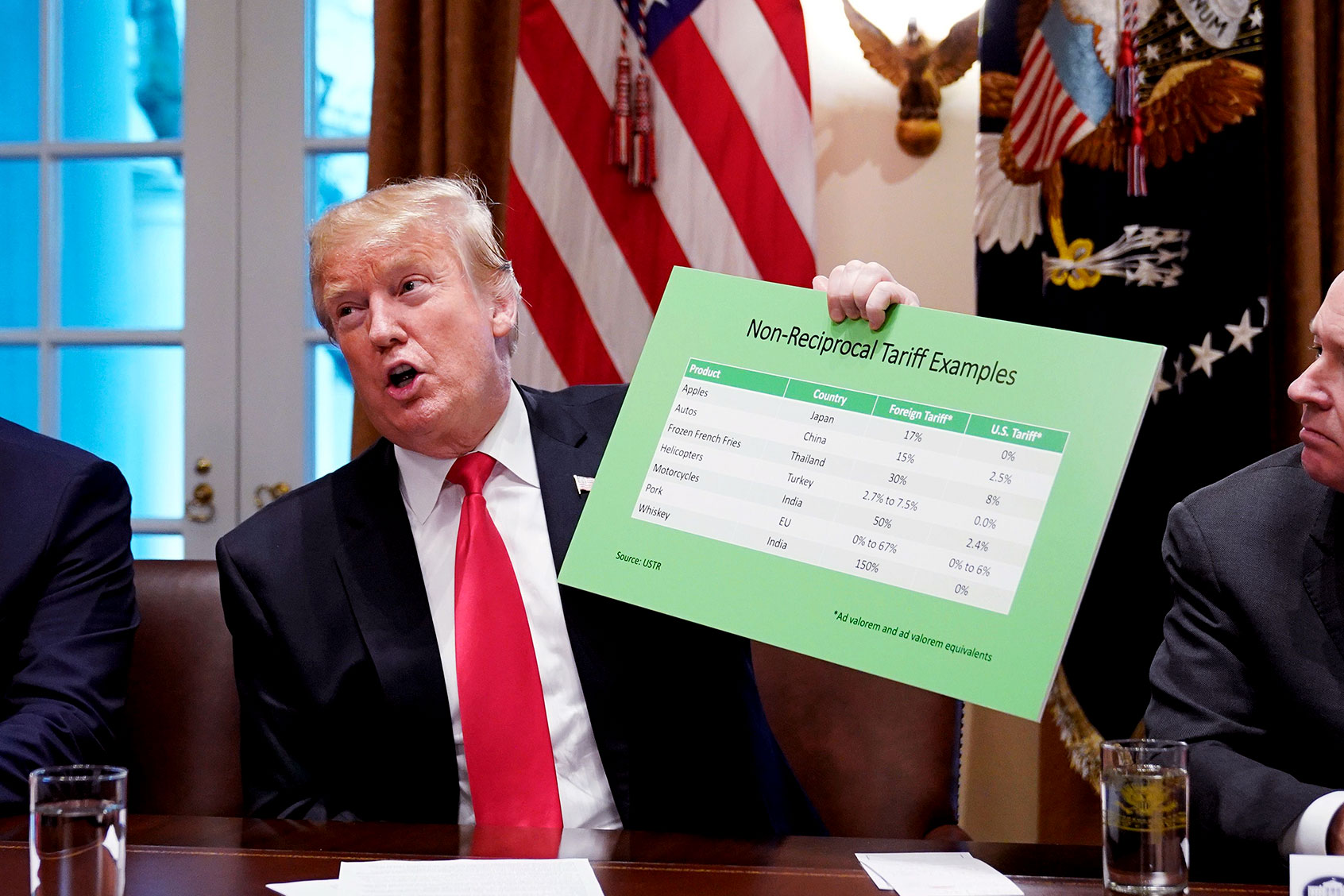As ghosts and monsters prepare to strike this Halloween, Americans might find that what haunts them most are not the ghouls at the door—it's the price tags at the store. As stubborn inflation has eased, former President Donald Trump and President Joe Biden may spook Americans all over again by slapping tariffs on pretty much everything that dares cross U.S. borders, especially products from China.
Tariffs — taxes imposed on imported goods — are used by countries worldwide to protect domestic industries from foreign competition or unfair trade practices. Trump has long made them his top economic talking point, claiming that they would bring manufacturing back to the U.S. He has doubled down on tariffs this campaign, falsely arguing that they would help bring down prices for consumers.
While Trump frequently boasted about bringing in “billions of dollars from China” through his tariffs, those billions were actually paid by U.S. importers to the government. Numerous studies have shown that these costs are ultimately passed on to American consumers in the form of higher prices.
Alex Durante, an economist at the Tax Foundation, a nonprofit tax policy research group in Washington, D.C., called Trump's claim "pretty misleading."
When tariffs are imposed, the cost of imports rises by the same amount, making everything from electronics to household goods more expensive. This functions much like a hidden sales tax on consumers. According to Durante, even products that aren’t directly affected by tariffs could see price increases, as businesses often raise prices to match their competitors and capture additional profits.
Trump this year has floated the idea of more aggressive tariffs, including a 60% tariff on all Chinese imports and a 10-20% tariff on goods from other countries. According to a study by the Peterson Institute for International Economics, such policies could cost the average American household an additional $2,600 per year, putting further strain on consumers already dealing with high prices.
Trump's earlier tariffs, including Section 232 tariffs from 2018 — which imposed 25% tariffs on steel and 10% on aluminum — are still being felt by downstream industries. For example, the U.S. beverage industry, which relies heavily on aluminum for packaging, has paid more than $2.2 billion in additional costs since the tariffs were imposed, according to research from HARBOR Aluminum on behalf of the Beer Institute.
We need your help to stay independent
“The reality is that Section 232 tariffs hurt far more than they help, and they hurt consumers who are already feeling the effects of inflation at the register,” Brian Crawford, president and CEO of the Beer Institute, said in a release. The U.S. beer industry packages over 74% of its products in aluminum cans and bottles.
In addition to driving up prices for consumers, tariffs can also harm U.S. exporters, who often face retaliatory tariffs from other countries. China in 2017 imposed a retaliatory 25% tariff on U.S. soybeans, which devastated American farmers. Soybeans, the top U.S. export to China, accounted for 62.5% of all U.S. exports to the country in 2017, according to data of the United States Department of Agriculture. After the tariffs were imposed, U.S. soybean exports to China plummeted by 74%, and overall exports fell by 20% in 2018, data show. Farmers, particularly in the Midwest, where over 80% of soybeans are grown, suffered significant financial losses.
Trump has bizarrely claimed that tariffs could “take care” of costs such as child care. He also suggested that he would use tariffs to stop wars, though experts like Durante argue that broad tariffs would instead trigger a global trade war.
Want a daily wrap-up of all the news and commentary Salon has to offer? Subscribe to our morning newsletter, Crash Course.
The Biden administration has acknowledged the economic harm caused by tariffs. In July, the White House released a report noting that tariffs have not been a meaningful source of government revenue since the early 1900s. A recent Moody’s study cited in the report found that widespread tariff increases would raise the U.S. inflation rate by 0.75 percentage points. But Biden has largely kept Trump’s tariffs in place.
These decisions are widely considered driven more by politics than sound economic strategy. Swing states in the Midwest, where steel production is a major industry, will be crucial in the upcoming election. “I don’t think it’s fair the entire country should have to suffer and see reduced growth and economic outcome because we want to benefit one particular industry in one particular part of the country,” Durante said.
Biden announced last Friday new tariffs targeting Chinese imports in strategic sectors that worth tens of billions of dollars, including 100% tariff on electric vehicles, 50% on solar panels and semiconductor chips and 25% tariffs on lithium-ion batteries.
Moreover, protecting domestic industries through tariffs may do more harm than good in the long run. Decades of research have shown that companies shielded from competition are less likely to innovate and invest in research and development, ultimately making them less competitive.
In short, tariffs are no treat — they're just a trick.
Read more
about money


